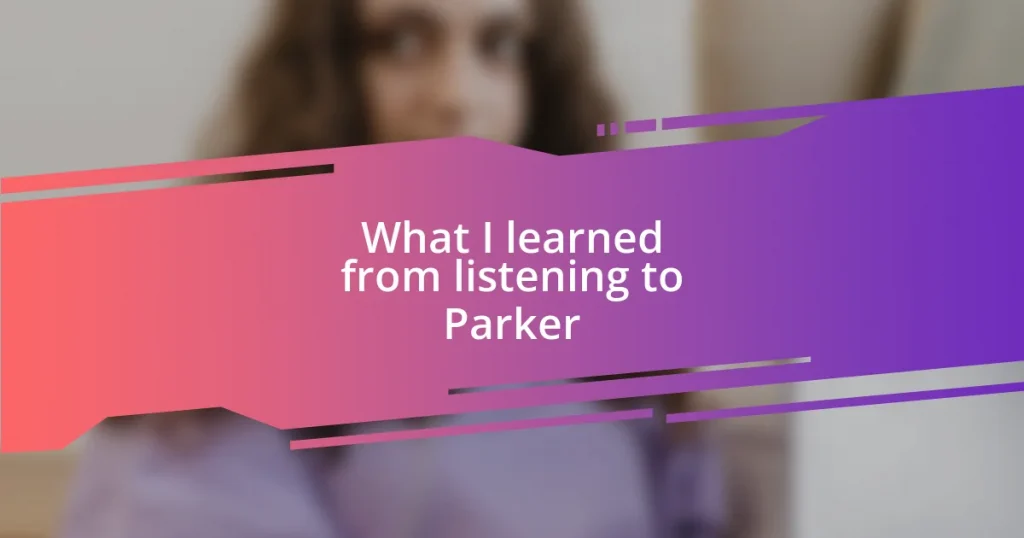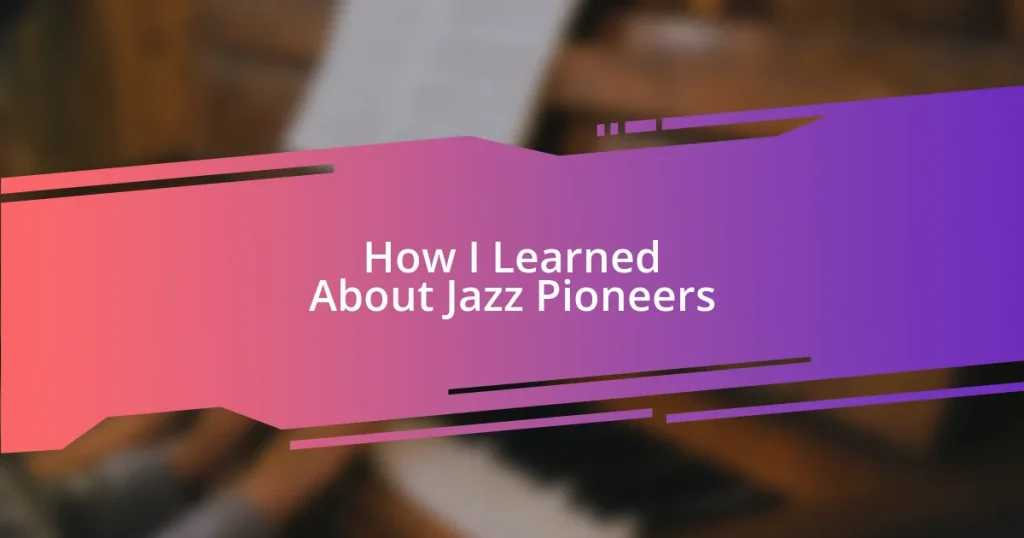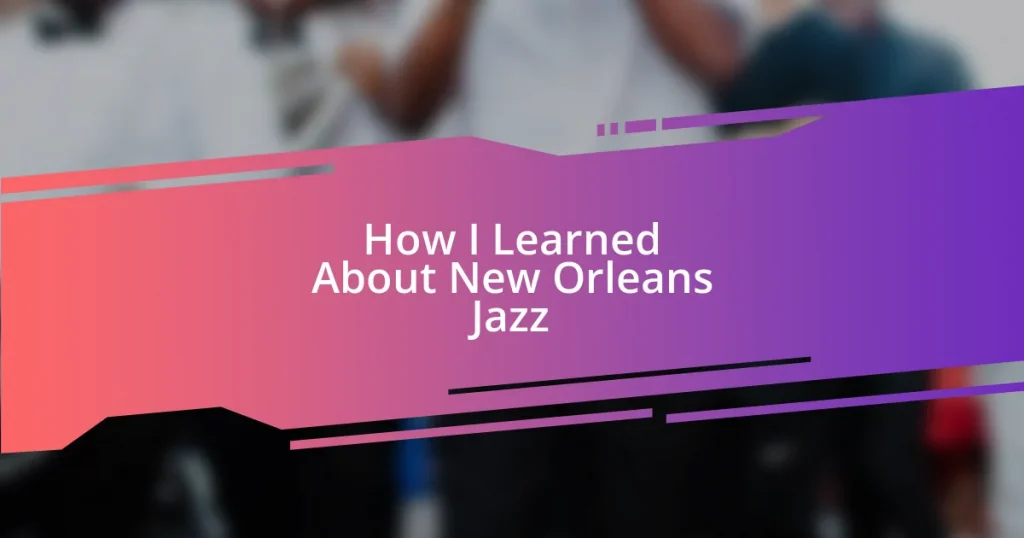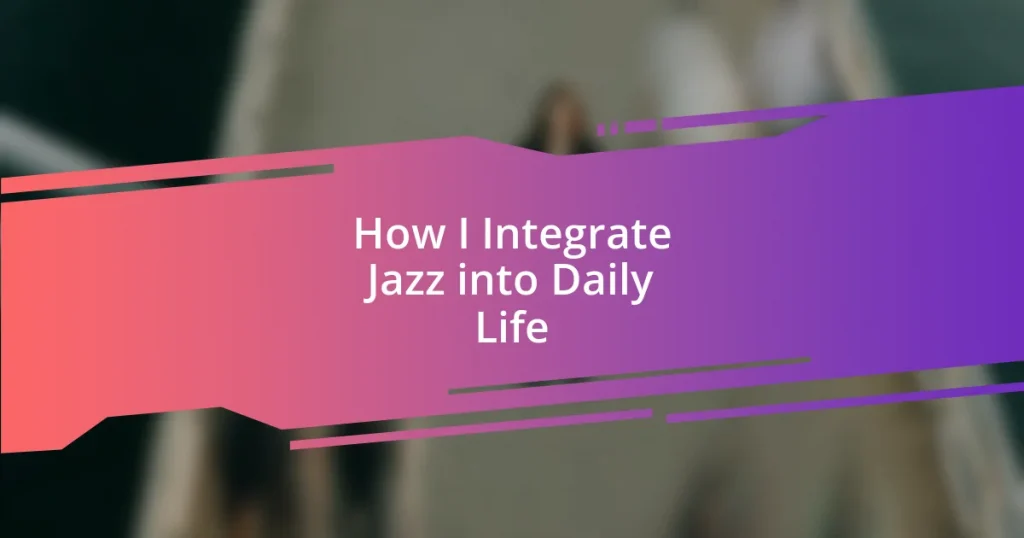Key takeaways:
- Vulnerability in communication fosters connections and builds trust within teams.
- Active listening transforms conversations by deepening understanding and making others feel heard.
- Viewing setbacks as opportunities for growth leads to personal development and inspires those around you.
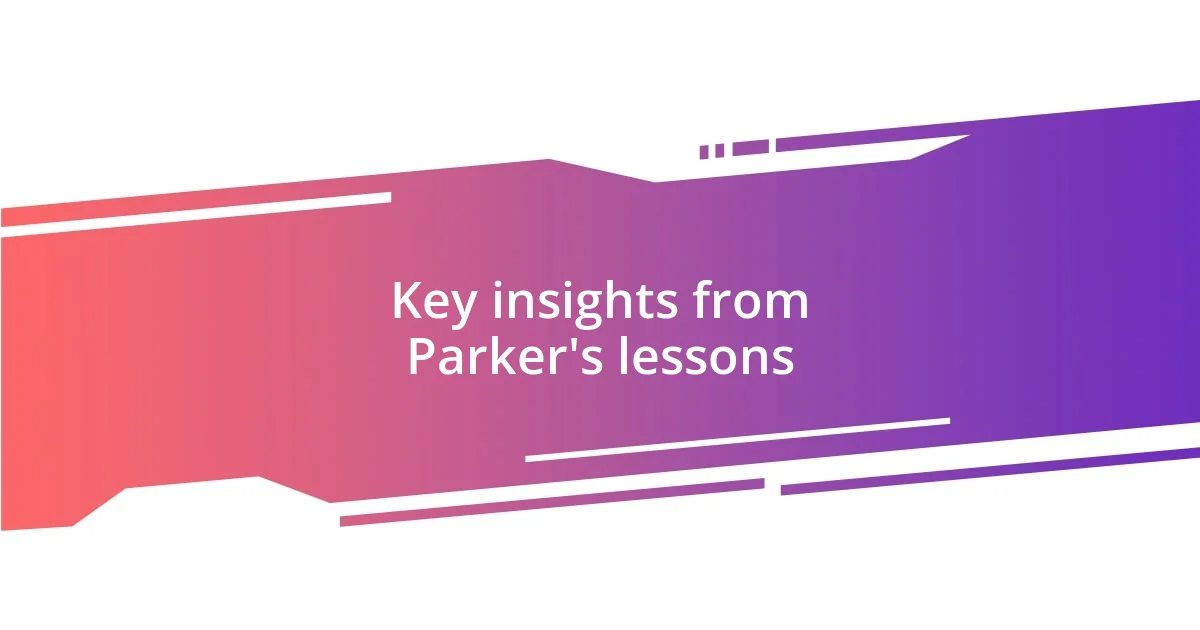
Key insights from Parker’s lessons
One of the most poignant insights I’ve gained from listening to Parker is the importance of vulnerability in communication. I remember a time when I hesitated to share my own struggles, thinking it might make me appear weak. Parker’s lessons have shown me that opening up can actually strengthen connections, as it encourages others to do the same. Have you ever felt that courage to be transparent?
Another key takeaway revolves around the power of active listening. Parker emphasizes not just hearing words, but truly understanding the emotions behind them. I recall a conversation with a friend where I initially brushed off their concerns, but after applying Parker’s approach, I realized how a simple acknowledgment could transform the dialogue. Have you tried listening deeply in your interactions?
Lastly, Parker’s insights on resilience resonate profoundly with me. He shares stories of setbacks that turned into opportunities, reminding us that challenges can pave the way for growth. I see this in my own life; when I faced a difficult career decision, embracing that moment helped me pivot in ways I never imagined. Isn’t it fascinating how our struggles can shape our path?
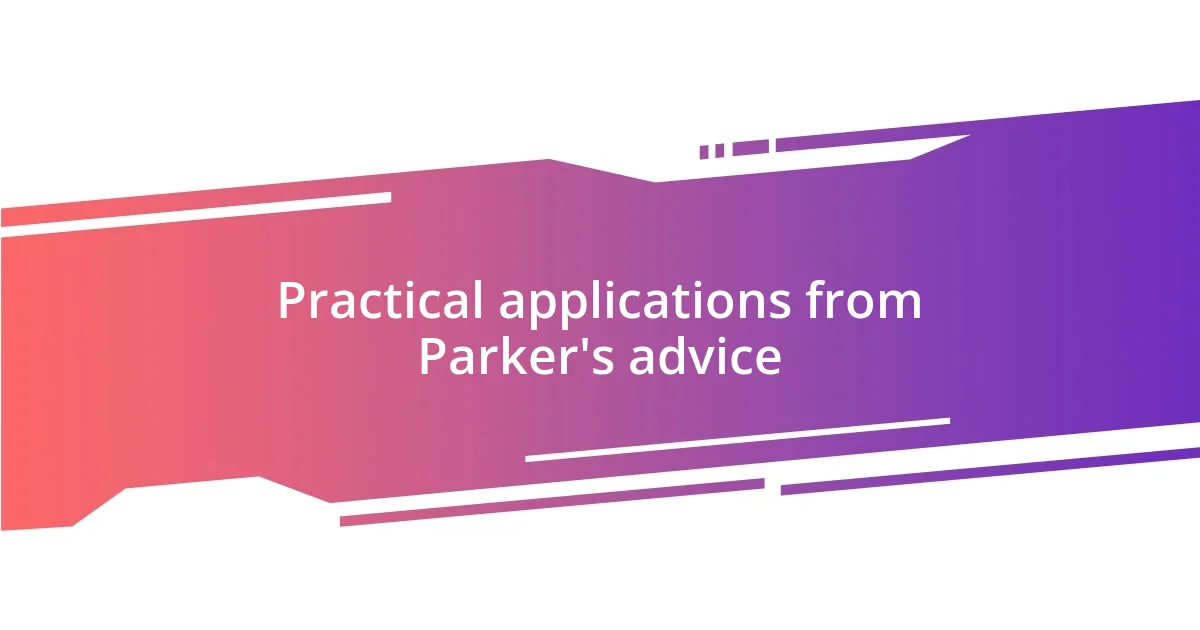
Practical applications from Parker’s advice
Parker’s emphasis on vulnerability has led me to approach my interactions with more openness. For example, during a recent team meeting, I chose to share my uncertainties about a project, which unexpectedly encouraged others to voice their own concerns. This shared vulnerability not only fostered a more collaborative atmosphere but also built trust within the team. Have you ever noticed how transparency can shift the dynamics in a group setting?
When it comes to active listening, I’ve become more intentional about how I engage with others. There was a moment when a colleague expressed frustration, and instead of rushing to offer solutions, I paused and asked questions to understand their feelings better. This shift in approach deepened our conversation and made them feel truly heard. Isn’t it amazing how a few intentional words can change the course of a discussion?
Parker’s lessons on resilience have inspired me to view setbacks as valuable learning experiences. Recently, after a challenging project didn’t turn out as expected, I took a step back to analyze what went wrong and what I could do differently. This reflection not only equipped me with new strategies but ultimately led to a successful follow-up project. Have you found that embracing challenges can unlock new paths for you?
| Application of Parker’s Advice | Personal Experience |
|---|---|
| Vulnerability in Communication | Sharing my project concerns fostered team trust. |
| Active Listening | Asking questions led to a deeper understanding of a colleague’s frustration. |
| Embracing Resilience | Analyzing mistakes opened doors for a successful follow-up project. |
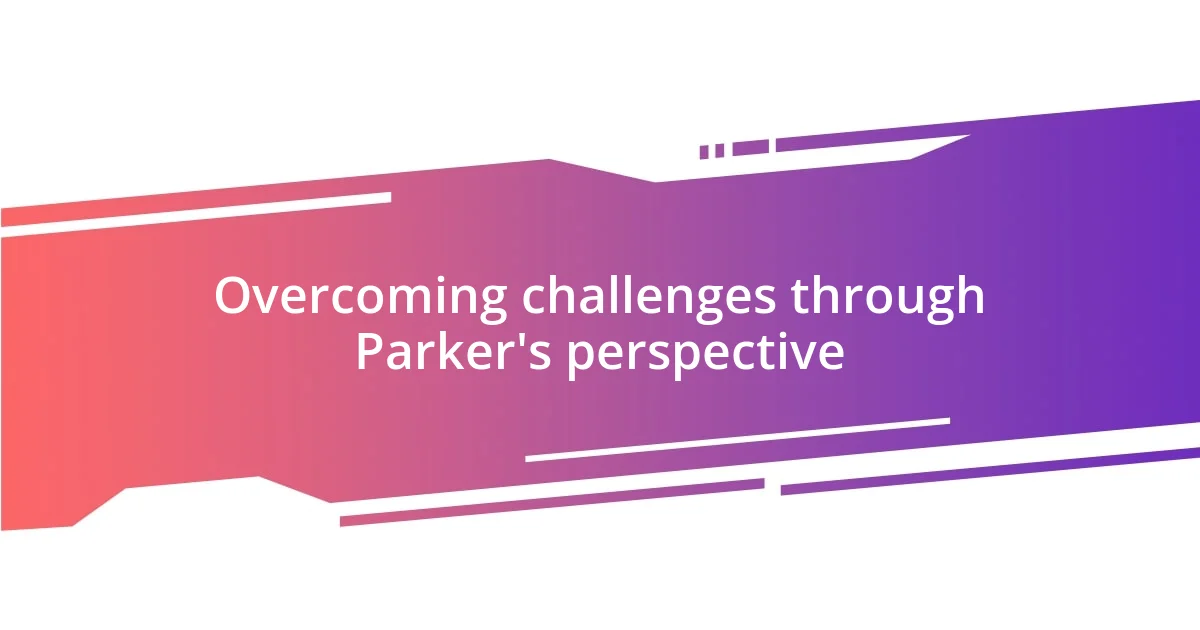
Overcoming challenges through Parker’s perspective
When I reflect on Parker’s perspective regarding overcoming challenges, I am often reminded of a significant moment in my life. There was a time when I faced a daunting barrier at work — a project seemed impossible, and it felt like I was under immense pressure. Instead of succumbing to that stress, I embraced Parker’s idea of resilience. I took a step back to assess the situation rather than rushing to fix it. This approach allowed me to identify manageable steps forward, and as I executed them, I discovered my own strengths, which was both empowering and enlightening.
- I learned to redefine setbacks as opportunities for reflection.
- Embracing difficult moments can lead to unexpected growth.
- Sharing these experiences with others helped cultivate mutual understanding.
Another lesson I’ve absorbed from Parker is the significance of maintaining a positive mindset when confronted with obstacles. I vividly recall tackling a personal challenge when I doubted my ability to lead a community event. I felt that familiar wave of self-doubt wash over me, but instead of turning away, I chose to confront it head-on. I applied Parker’s wisdom, reminding myself that growth comes from stepping outside of my comfort zone. Through that determination, I witnessed not only my own transformation but also how my courage inspired others to contribute more actively. It’s a beautiful cycle, really — one that reinforces how our challenges can elevate the entire group.
- A positive mindset is crucial when navigating difficulties.
- Encouraging others while overcoming your own hurdles creates a supportive environment.
- Sidestepping self-doubt can lead to impressive outcomes.
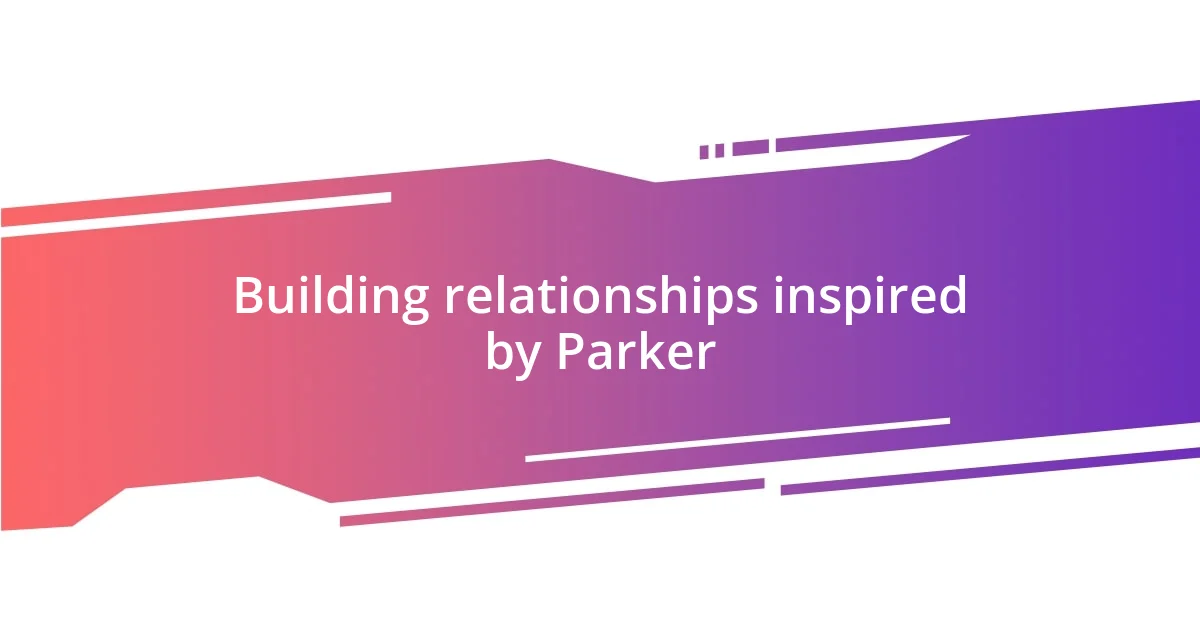
Building relationships inspired by Parker
One of the most profound lessons I’ve learned from Parker is the importance of genuine connections. After a heartfelt conversation with a friend who was going through a tough time, I realized my willingness to share my own experiences made them feel less isolated. Have you ever noticed how, when we open up, it encourages those around us to do the same? This mutual exchange of stories fosters deeper relationships and creates a solid foundation of trust.
Building relationships requires active effort, and I’ve seen firsthand how small gestures can make a significant impact. I remember taking the time to check in with a coworker who seemed distant lately—just a simple text to ask how they were doing. That little action broke the ice and opened the door for a meaningful conversation. It’s fascinating how just showing you care can nurture bonds that withstand the ups and downs of work life.
Additionally, Parker’s approach to constructive feedback has reshaped how I interact in professional settings. During a recent project review, instead of critiquing my team harshly, I chose to frame my feedback as a collaborative effort. I asked, “What can we learn from this?” This shift in perspective not only strengthened our relationship but also encouraged a culture of continuous improvement. Isn’t it rewarding to see how a shift in my communication style can elevate everyone’s experience?










